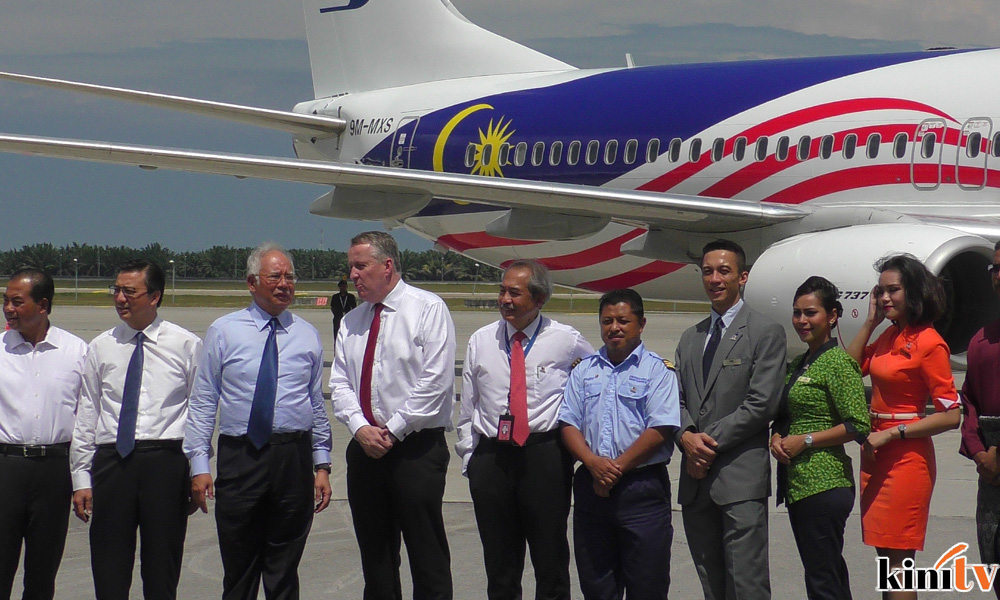A QUESTION OF BUSINESS | Four CEOs in less than three years, and the last two - foreigners both - barely serving out a year of their three-year appointment periods cannot be good for an airline, especially one that is yet to be turned around such as Malaysia Airlines Bhd, which reportedly made a loss of over RM450 million for 2016.
But a rather quick appointment of the fourth CEO, a Malaysian who is currently chief operating officer at Malaysia Airlines, Captain Izham Ismail, may have been rather too hasty in contrast to the first foreign CEO, German Christoph Mueller, with a search taking several months.
The question is whether the new CEO, who takes over on Dec 1, after current CEO Peter Bellew officially leaves, has the necessary breadth and depth of experience as well as the stature to run an airline as complicated as this one, which is currently in the throes of a rather painful restructuring and is still making substantial losses. More on that later.
Mueller quit Malaysia Airlines in April 2016 after barely one year at the helm, citing infamously undisclosed personal reasons; but barely two months later, rumours floated he was going to join Emirates, which he did in September as chief digital and innovation officer. So much for personal reasons!
What was puzzling was that Malaysia Airlines did not seem to have an agreement to stop Mueller from going to another airline for a long-enough period of time. It also highlighted serious conflict-of-interest situations as Mueller had negotiated extensive code-sharing agreements with Emirates as he downsized Malaysia Airlines’ operations, relying on Emirates to make many international connections.

Was Mueller good for Malaysia Airlines? I examined this question in a column last year after his departure was announced. He was a cost-cutter and he slashed routes in addition to the planned layoff of 6,000 staff earlier under a RM6 billion rationalisation programme by Malaysia Airlines owner, Khazanah Nasional, in 2015. This is in addition to RM17 billion spent on the airline over the previous 14 years to make a total of RM23 billion.
However, in my opinion Mueller, as explained in that column, did not address the underlying problem - declining yields (a measure of how much revenue was being obtained per seat) even as load factors (a measure of seat utilisation) rose. Simply put, Malaysia Airlines was filling up planes by offering cheap fares, often lower than that of low-cost carrier AirAsia.
One would have believed that Malaysia Airlines, has learnt the lesson - to make CEO tenures firmer and contracts more binding. But the same problem recurred with Bellew.
Bellew, the previous chief operating officer who was hired by Mueller, became CEO in July 2016 after Mueller’s departure. Now a little after a year into his three-year contract, he is going to rejoin European low-cost carrier Ryanair as chief operations officer on Dec 1. Bellew was previously director of flight operations at Ryanair, leaving in 2014 and joining Malaysia Airlines in September 2015 - it looks like he had, unlike at Malaysia Airlines, a long “gardening leave” before joining another airline.
The surprising thing about his appointment was that the announcement came from Ryanair on Oct 17 and stated that he will join Ryanair in Dublin on Friday, Dec 1. Malaysia Airlines only then issued a statement which went as follows:
“Malaysia Airlines takes note of the unexpected announcement (my emphasis) by RyanAir Holdings PLC to the London Stock Exchange regarding CEO Peter Bellew. At a press conference with Malaysian and international media on 27 September 2017, Bellew had expressed his commitment to Malaysia Airlines when asked to comment on speculation that he would rejoin RyanAir. He said that he was happy to be in Malaysia and that the turnaround of Malaysia Airlines would be ‘the greatest achievement of my life’”. (Bellew, however, maintains he sent his letter of resignation to Malaysia Airlines on Oct 8.)
Note, “the greatest achievement” of his life...

